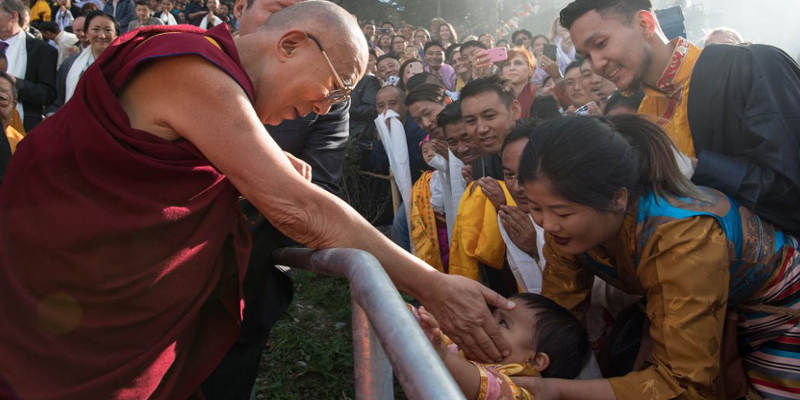The Tibetan spiritual leader His Holiness the Dalai Lama on the second day of celebrations of the 50th anniversary of the Tibet Institute in Rikon, Switzerland told that the Tibetan spirit is firm because of their religion and culture. Before attending the second day of celebrations of the Tibet-Institute Rikon’s 50th anniversary, His Holiness the Dalai Lama gave an interview to Swiss television on Saturday.
At the Tibet Institute’s further celebrations of its 50th Anniversary in Winterthur, His Holiness the Dalai Lama began with “I welcome all the distinguished guests, reminding you that supporters of Tibet are supporters of the truth. I’m very happy to be here. I have a special connection with both Rikon Monastery and with Winterthur. I used to come here for medical treatment.”
His Holiness also explained how the Tibetan resettlement in Switzerland began with the help of Swiss Red Cross’s invitation to 1000 Tibetans which has now turned out to become the host to the largest number of Tibetan refugees in Europe. His Holiness in the end explained that the Tibetan spirit is firm because of their religion and culture by presenting the evidence of Tibetan self immolators who instead of harming the Chinese, sacrifices their lives in such desperate times.
“The Tibetan spirit is firm because of our religion and culture. Even those who commit self-immolation, if they can carry that out, are capable of harming others and yet they restrain themselves from doing so because of their religion and culture. Young people in Tibet today have a strong, firm spirit. In the past committed Communists like Phuntsok Wangyal still maintained a strong Tibetan spirit. Tibetans have a passion to preserve their religion and culture.” His Holiness the Dalai Lama explained.
His Holiness will teach from Nagarjuna’s ‘Precious Garland’, Kamalashila’s ‘Middle Volume of the Stages of Meditation’ and Thogme Sangpo’s ‘Thirty-seven Practices of Bodhisattvas’ on Sunday.







Leave a Reply